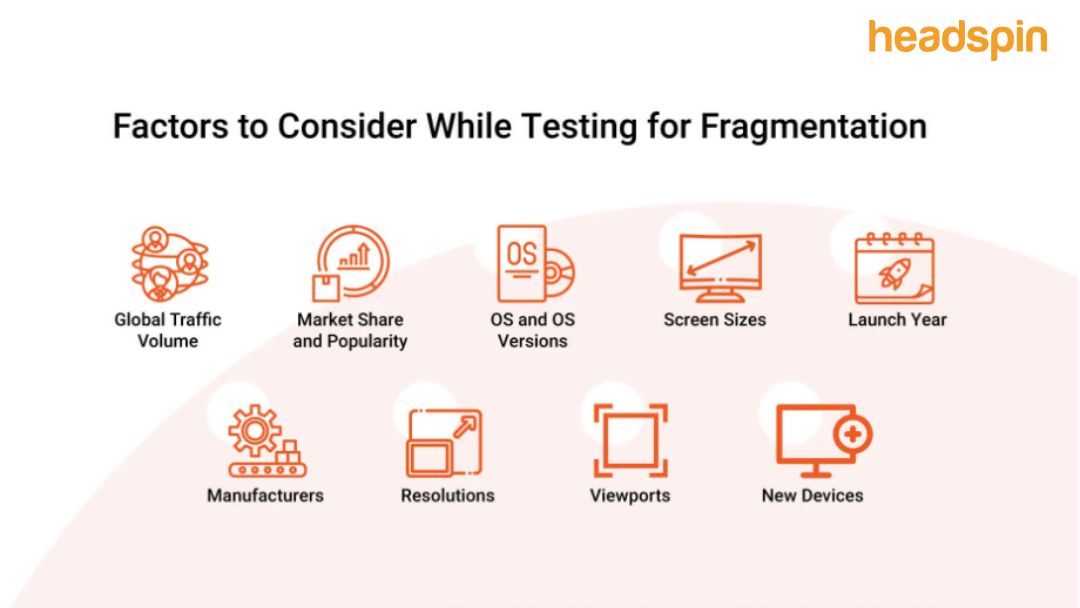Factor to consider while testing for fragmentation
 Gurdhir Singh
Gurdhir Singh
Fragmentation is the diversity of browsers, devices, and platform versions in use at any given point in time. This phenomenon occurs when some mobile users use older versions of an operating system, browser, or device, while others use newer versions. Fragmentation can be a problem for developers who must create different versions of the same application to ensure it works perfectly with various versions of a given OS. It can also be a problem for IT departments because various operating versions have different capabilities, making them harder to manage and secure.
What are the Different Types of Fragmentation?
1. Browser Fragmentation
People use various types and versions of browsers, as there are different players in the browser space, such as Chrome, Safari, Microsoft Edge, and Firefox. However, it won't be ideal for developers to optimize their websites just for Chrome and Safari (major players). This is because they will still lose out on potential revenue from customers coming through other browsers, like Samsung Internet and Opera. As each browser family has multiple versions in the market, organizations need to use cross-browser testing to check the compatibility of their applications and devices with various browsers. So that browser fragmentation won't be a problem for them.
2. Operating System Fragmentation
Operating system fragmentation is often associated with Android, Google's mobile OS. This type of fragmentation is not as much of an issue with iOS devices. Android fragmentation refers to the fact that many different Android OS versions are available and operational in the digital world. As 74.6% of the world's smart devices run on Android, the bugs and security issues caused by the Android fragmentation are considered the main weaknesses of the OS.
Generally, manufacturers are responsible for providing updates tailored to the particular versions of Android offered on their devices. Every manufacturer may not provide updates consistently. The lack of updates to devices can lead to Android fragmentation. Additionally, some Android versions may be heavily modified and not even respond to updates created for other versions. This can also be a reason for the occurrence of Android fragmentation. Android's open-source nature has led to manufacturers skinning their Android versions. This refers to the manufacturer's unique modification of the OS created for a particular device. Therefore, mobile devices may have vast visual and functional differences despite running on the same OS, thus, resulting in fragmentation.
Android fragmentation is one of the main concerns for developers and testers. With the help of Android app testing methods, testers or developers creating Android apps must ensure that they appeal to and function for a majority of users, which translates to their optimization for various devices and OS versions.
3. Device Fragmentation
Nowadays, people use different types of devices to access the internet. Mobile devices, desktops, and tablets are the main devices used by people. Device fragmentation is caused due to the lack of required hardware or API to support the new changes in the apps or websites. Device fragmentation is made worse when the wireless carrier, rather than the device manufacturer, decides when to deploy operating system updates. If the system is not updated on time, the performance of the devices will take a hit. To avoid device fragmentation, organizations need to test their devices in real-time.
Subscribe to my newsletter
Read articles from Gurdhir Singh directly inside your inbox. Subscribe to the newsletter, and don't miss out.
Written by

Gurdhir Singh
Gurdhir Singh
Senior Software QA tester with full system development lifecycle experience, including designing, developing, and implementing test plans, and test cases.